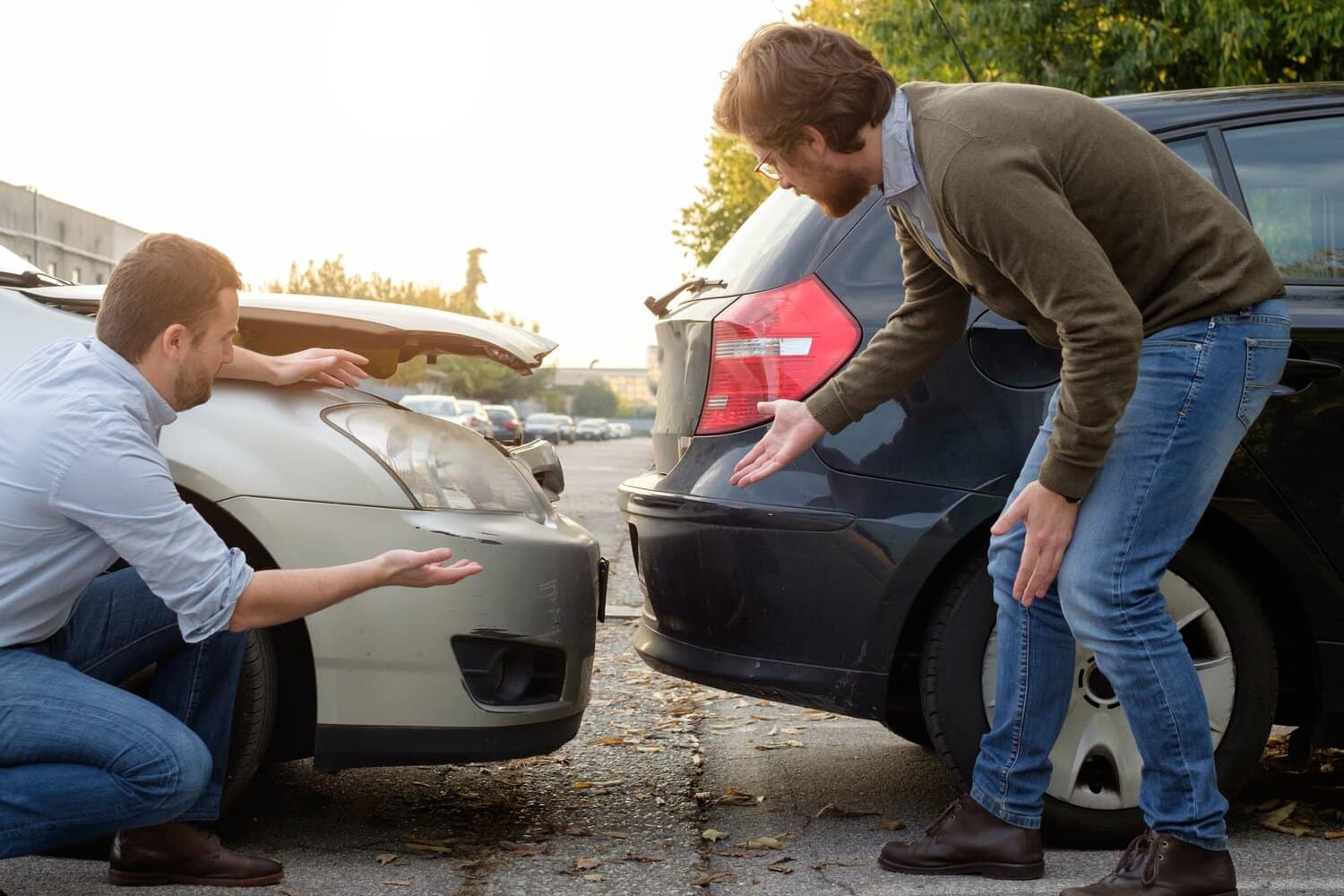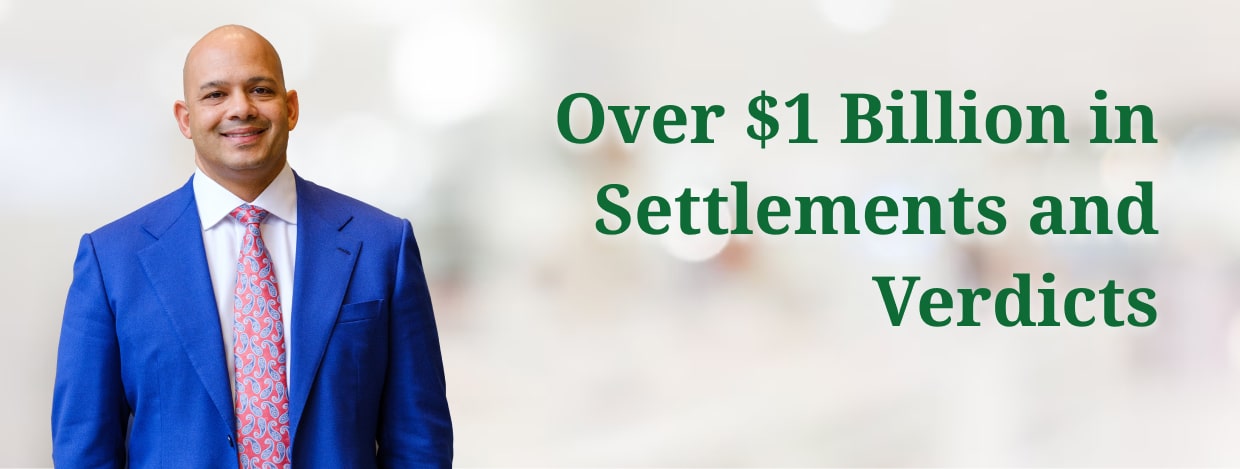
Did you know that, despite the pandemic, car accident injuries actually increased and amounted to over $470 billion in 2020 alone? Unbelievable, but true.
If you’ve recently been injured in a car accident, you’re clearly not alone. The aftermath of the crash can be especially upsetting if the insurance company determines that you were responsible for causing the accident.
If the insurance company is wrong, you have a right to defend yourself. Read on to learn more about how to dispute a car accident fault.
Table of Contents
- What Is Fault Finding after a Car Accident?
- How to Dispute Fault in a Car Accident?
- Is Fault a Key Issue in a Car Accident Claim?
- Who Determines Fault in a Car Accident?
- What Evidence Can Help Determine Fault in a Car Accident?
- Is Disputing Fault Worth It in a Car Accident Case?
- Can At-Fault Drivers Still Collect Compensation?
- What Should You Do After an Accident to Protect Yourself?
- How Can You Prove the Other Driver Was at Fault?
- How Do You Dispute Fault in a No-Fault State?
- What Should You Do If You Are Sure You Were at Fault?
- Why Should You Hire BK Law in a Car Accident Case?
- Contact a Car Accident Lawyer at BK Law Today
What Is Fault Finding after a Car Accident?
Fault finding after a car accident simply means identifying who was responsible for causing the accident. That individual will be on the hook for damages resulting from the accident. To determine fault, an agent that works for the insurance company will be sent out to investigate the crash. The investigation will include reviewing all the evidence involved in the accident, including police reports, photos, medical records, and witness statements. The insurance company will also examine the vehicle to determine the amount of property damage incurred.

How to Dispute Fault in a Car Accident?
Processes for disputing fault vary, so be sure to check with your insurance company to understand their fault dispute policies. Generally, however, the steps to dispute a finding of fault include the following items:
Gather Evidence
You’ll need organized evidence to effectively dispute fault. When challenging a finding of fault, it is important to be detailed and thorough. Evidence includes:- Photos/videos taken at the scene
- Surveillance footage
- Police reports
- Medical records
- Witness statements
Notify the Insurer in Writing
Keep in mind that the insurance company is not your friend. They have their own interests—which is why their finding of fault isn’t the final word. Accordingly, be sure to notify the insurance company in writing that you’re challenging the decision. It’s important that you provide this notification to all insurance companies involved in the claims process.Contest Inaccurate Documents
Don’t accept what’s written in the police accident report if there are inaccuracies. Similarly, fight any traffic tickets you were issued, especially if there are written comments by the police that make you look bad. Insurance companies often rely on police reports and citations to determine fault. Don’t let inaccurate facts muddy your case.Contact a Personal Injury Attorney
One of the best things you can do for yourself is get the help of a professional. You have a greater likelihood of success if you have an experienced car accident lawyer on your side. Often, once they’ve been notified of a challenge, insurance companies will take another look at the case and possibly re-evaluate the finding of fault. Knowing you’ve hired an experienced attorney will likely have an impact on their willingness to reconsider.Is Fault a Key Issue in a Car Accident Claim?
Not always. No-fault states like Florida require every driver to have personal injury protection (PIP) as part of their insurance coverage. When you’re involved in a car accident, it doesn’t matter who is at fault. Both drivers must turn to their own insurer and use their PIP coverage to take care of their injuries. So, fault doesn’t matter. However, if your medical costs exceed the minimum PIP cap or your injuries are especially extensive, you’re no longer required to work within the no-fault system. This means you can go after the other driver’s insurance company for damages. When that happens, fault becomes absolutely critical.
Pure Comparative Negligence
Florida operates under the theory of pure comparative negligence in determining how to apportion blame once a case is outside the no-fault system due to high costs or severe injuries. Pure comparative negligence means that your total compensation will be reduced by your share of the blame. For example, if you’re found to be 40% at fault for the accident, you can only recover 60% of your damages.Who Determines Fault in a Car Accident?
The insurance company is responsible for initially determining who is at fault for a car accident. However, they don’t get the final say if you choose to challenge. If necessary, you can even take them to court.
What Evidence Can Help Determine Fault in a Car Accident?
There are several key pieces of evidence that are of critical importance in determining fault in a car accident. Essentially, they include the same evidence noted above for disputing fault.
Police Report
Police reports legally document the facts involved in the accident. The police do not determine fault but cite important information about the accident that may later prove useful. The police will also generally collect statements from eyewitnesses at the scene of the accident. These accounts of the accident may be useful later in court.Photo/Video Evidence
Photo and/or video evidence is a central element in successful fault findings. It’s important to take photos of any and all damages after an accident, including visible injuries and damages to both vehicles. You should also take photos of road conditions, debris, skid marks, or any other after-effects related to the car accident. An accident reconstructionist may be able to decipher these photos to better convey the events of the accident and help you challenge a finding of fault.Witness Testimony
It is important to get the names, addresses, and phone numbers of any eyewitnesses who are willing to provide this information. This is a good idea whether or not the police take statements from witnesses. Eyewitness testimonies may prove to be of great value when fault in the case is up for dispute. Objective bystanders have no vested interest and are therefore seen as credible.Is Disputing Fault Worth It in a Car Accident Case?
Even if you feel that fault was wrongfully attributed after an accident, it may not always be in your best interest to pursue a dispute with the insurance company. This is especially true where the insurance company is still likely to compensate you even if you’re at fault. Oftentimes, the worst consequence of being found at fault is an increase in insurance rates. However, it may be a good idea to dispute fault findings if your circumstances involve extensive physical injuries and you’re seeking damages from the other driver’s insurance company. The degree to which you’re at fault can have a significant impact on your compensation.
To learn more, schedule a free consultation with us today.
Can At-Fault Drivers Still Collect Compensation?
Yes, regardless of which driver is at fault, an individual can still collect compensation. In a no-fault state like Florida, each driver can be compensated by their own insurance company regardless of fault. In situations outside the no-fault system (e.g., costs exceed your own insurance), your compensation is simply reduced by how much you were at fault—you are not completely barred from recovering damages if you partially contributed to the accident.
What Should You Do After an Accident to Protect Yourself?
It’s hard to maintain focus after a car accident; however, it’s critical to take certain steps to protect and preserve your legal rights. Let’s start with what could work against you:
- As much as you may want to argue with the other driver or apologize—don’t. The less said, the better. It’s important to watch your words and actions after an accident occurs.
- Never admit fault, whether you made a mistake or not.
- What you do and say in those moments can’t be taken back and bystanders may be recording.
- Don’t sign any documents, make any verbal agreements, or mention anything regarding compensation.
- Avoid discussing any potential outcomes that may result from the accident.
- Under no circumstances should you accept money from the other driver.
Call the Police and File a Report
Recording this information with law enforcement may later prove to be a vital piece of evidence in your case.File a Claim With the Insurance Company
Call the insurance company immediately after the accident. This is the best time to provide details of the events that occurred in the accident while they are still fresh in your mind.Take Photo and Video Evidence
Take photo and video evidence of all elements of the accident scene, including:- Visible Injuries
- Road Conditions and/or Debris
- Damages of Both Vehicles
- Positions of Each Vehicle Involved
- Skid Marks
Were There Any Eyewitnesses?
Ask those standing nearby if they saw what happened and with permission, get contact information such as names, phone numbers and addresses. These individuals may be willing to testify in your case on your behalf in the event your case goes to court.Exchange Information
Don’t spend time talking to other drivers about what happened—just exchange information including names, phone numbers, license plate numbers, and insurance information.Seek Medical Attention
Even if you think you’re perfectly fine, get checked out by a doctor immediately after the accident. After an accident, the body is fueled by adrenaline and oftentimes shock, causing numbness or euphoria. Also, some injuries, including traumatic brain injuries and internal damage, may take hours or even days to become apparent. Protect yourself by seeking medical attention to rule out any serious issues and document any non-visible injuries.Contact a Personal Injury Lawyer
Contact a personal injury lawyer immediately after an accident occurs and a claim has been filed. Provide your lawyer with all the details of your accident. You may need to send regular updates if your accident caused injuries that require ongoing medical treatment. While you’re in recovery, your lawyer will begin building your case to prove that the other party is liable for your injuries. The lawyer will also handle the insurance company and begin negotiating for fair compensation.How Can You Prove the Other Driver Was at Fault?
Examples of evidence that can help you prove the other driver was at fault include:
- Photos
- Witness statements
- Surveillance footage
- Expert testimony
- Police report
How Do You Dispute Fault in a No-Fault State?
It’s important to file an insurance claim even if you live in a no-fault state like Florida. The insurance company will compensate for damages in these states, regardless of which driver is at fault. Because you will be compensated regardless, it’s not really necessary to dispute fault for an accident in a no-fault state. It’s only necessary in those situations where damages exceed your insurance coverage or your injuries were severe by legal definition. Speak with a legal professional to learn more about fault disputes and to determine whether or not it would be beneficial in your unique circumstances. If you decide to file a dispute, the process is the same as in an at-fault state.
What Should You Do If You Are Sure You Were at Fault?
File a claim with the insurance company as soon as possible if you know that you’re at fault in the accident. The other party is highly likely to file a claim against you in these circumstances and this will prepare your insurance company for this possibility. Hire an attorney even if you believe without a doubt that you’re at fault. You may be only partially to blame, reducing the amount of your legal liability.
Why Should You Hire BK Law in a Car Accident Case?
If you’ve read this far, you know car accident cases are complex and shouldn’t be handled on your own. You need an experienced car accident lawyer. The legal system is unpredictable, but our lawyers at BK Law have been helping injured clients for decades. We know personal injury law inside and out, and we’re prepared for anything that may arise in your case. We’ve earned our reputation for being fearless and aggressive in taking care of our clients. Insurance companies know they’ll have it tough when they go up against our firm.
Contact a Car Accident Lawyer at BK Law Today
Contact BK Law for a free consultation and to learn more about how to dispute a car accident fault. Give us a call to speak to a member of our personal injury team. Let us show you why we’re the right firm for you.
Personal Injury Practice Areas
Car Accident
Truck Accident
Uber Accident
Scooter Accident
Bicycle Accident
Boating Accident
Medical Malpractice
Wrongful Death
Slip and Fall
Construction Accident
Jet Ski Accident
Workers Compensation
Catastrophic Injury
Pedestrian Accident
Pool Accident
Premises Liability
Bus Accident
Motorcycle Accident
Dog Bite Accident

